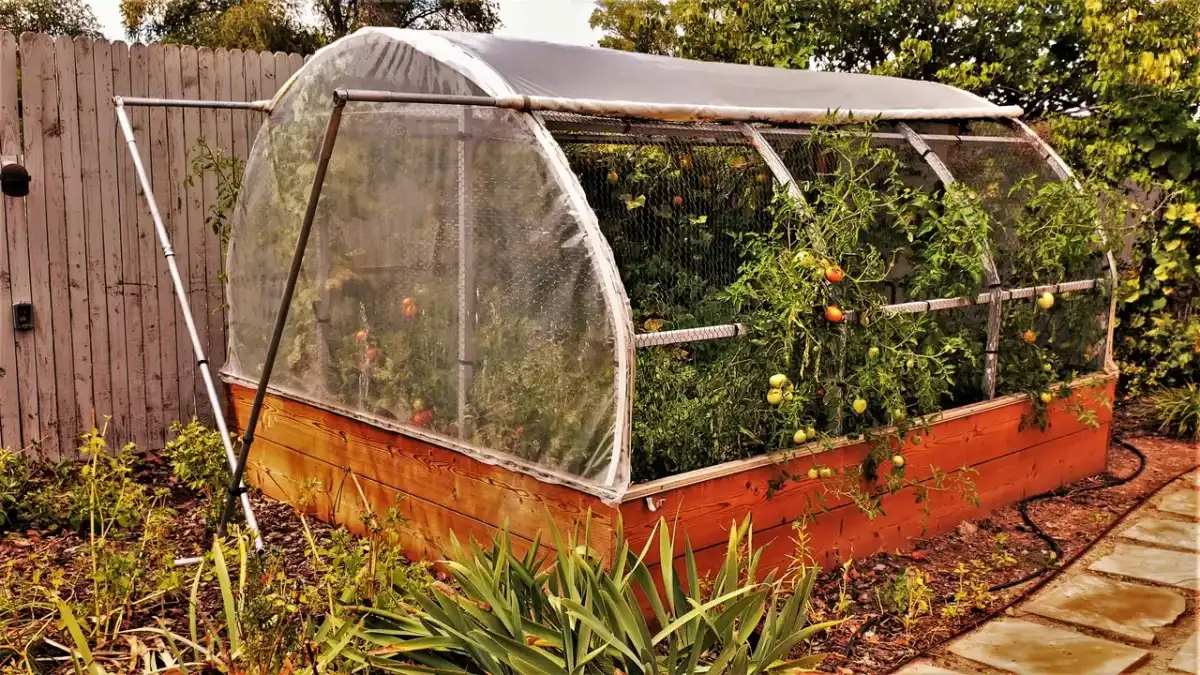As the days grow shorter and temperatures begin to drop, it’s time to think about getting your garden ready for the cold months ahead. Taking the time to prepare can help ensure your plants stay healthy and come back strong in the spring. Here are 10 simple steps you can take to get your garden winter-ready.
Harvesting and Storing Vegetables
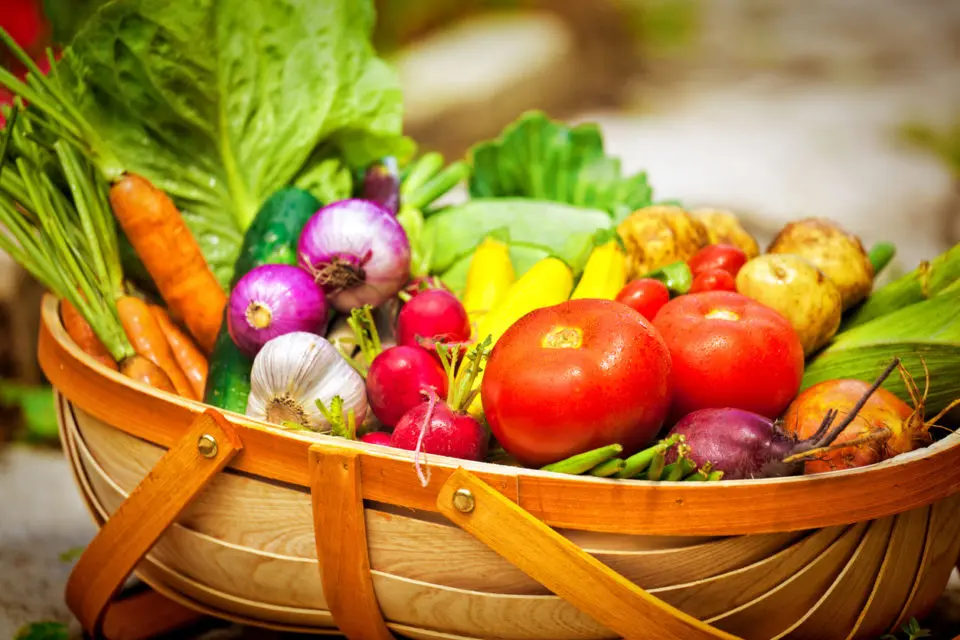
Before the cold really sets in, it’s important to harvest and store your vegetables the right way. Different types of vegetables have different levels of cold tolerance, so it’s important to know which ones need to be harvested early and which ones can stay in the ground longer.
Tender Vegetables
Tender vegetables like tomatoes, zucchini, beans, and pumpkins don’t handle frost well. Harvest them before the first frost hits. Remove all plant debris to prevent disease from spreading. If any plants are diseased, it’s best to burn or throw them away instead of composting them.
Hardy Vegetables
Hardy vegetables like Brussels sprouts, kale, and spinach can survive a hard frost and taste even better after the frost hits. If you have Brussels sprouts, you can leave them in the ground and cover the plants with hay or leaves to protect them. Hardy greens like kale and collards become sweeter after a light frost. You can also leave root crops like carrots, turnips, and beets in the ground after a frost, but make sure to dig them up before the ground freezes completely.
Semi-Hardy Vegetables
Semi-hardy vegetables, such as cabbage, Swiss chard, and leeks, can tolerate light frosts. It’s a good idea to cover these crops with row covers, or you can harvest them before the severe frost arrives. Root vegetables like carrots and parsnips can stay in the ground for a while but should be harvested before the ground freezes solid. For potatoes, dig them up and allow them to dry in a warm area to toughen their skins before storing them.
Once you’ve harvested your vegetables, make sure to store them properly. Many vegetables can be stored by canning, freezing, or drying. Don’t forget to check out home preservation guides for tips on storing your herbs and vegetables.
Cover Up the Garden Beds
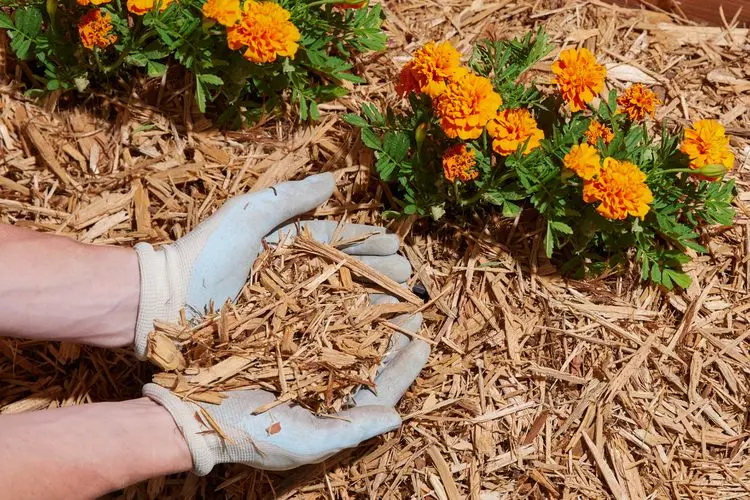
Garden beds can really benefit from a little extra protection in the winter. Adding compost in the fall is a great way to prepare the soil for the spring. A few inches of compost or manure will soak into the soil over the winter, making it healthier for next year’s crops. You can also top the compost with a light layer of mulch or straw to prevent soil erosion, keep nutrients in, and stop weeds from growing.
If you’re looking to improve your soil, consider planting cover crops like winter rye. Cover crops help stop soil erosion, add nutrients, and suppress weeds. You can also use black plastic, cardboard, or even old carpets to cover the soil. This will kill weeds and keep any seeds from sprouting.
Prepare Herbs for Winter
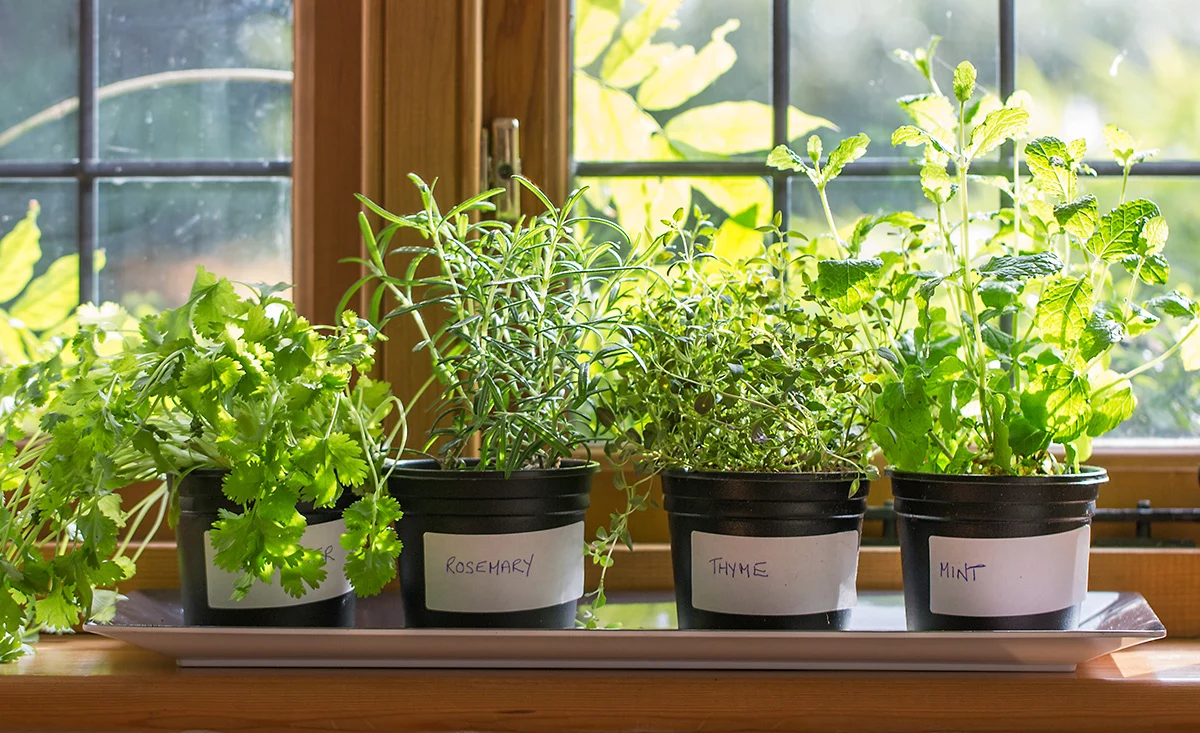
Some herbs are more winter-hardy than others, and knowing how to care for them will ensure they come back next year.
Hardy Herbs
- Sage: This herb is a perennial in most areas and doesn’t need any special care for winter. Just cut a few branches before the frost for drying and use in winter dishes.
- Thyme: A tough perennial herb, thyme will survive the winter, going dormant in the cold weather and returning in the spring.
- Parsley: A biennial, parsley can handle light frosts. In colder zones, cover it during especially cold nights. It has a long taproot, so it’s best to start fresh parsley in the spring.
- Chives: Chives are hardy perennials. You can dig up a bunch and pot them indoors, where they’ll stay alive and continue to grow throughout the winter.
Tender Herbs
- Rosemary: A delicate evergreen, rosemary should be protected outdoors in milder climates or brought inside for the winter in colder zones.
- Basil: Since basil is an annual, it won’t survive the winter outside. However, you can bring smaller plants inside to continue growing.
- Oregano: Oregano is fairly hardy, but it’ll benefit from a layer of straw or mulch for extra protection in the colder months.
Prepare Perennials for Winter
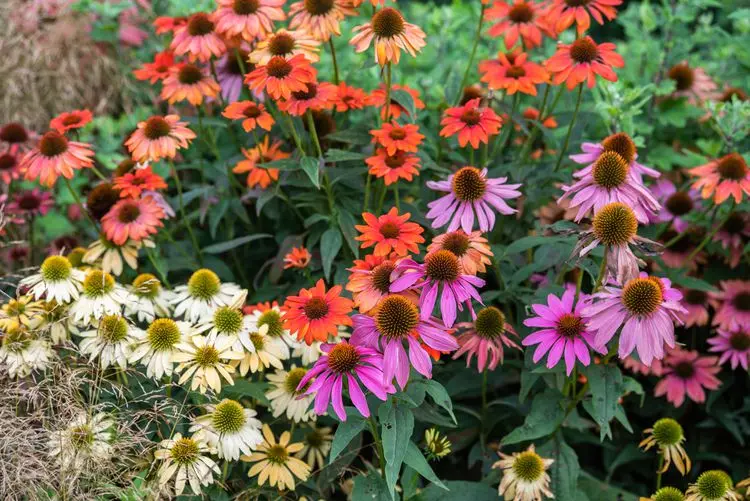
Perennials need special care to make sure they come back strong when the weather warms up. Here’s how to get your perennial plants ready for winter.
Watering
Water your perennial plants well in the fall, even though the temperatures are cooling down. The water will help insulate the roots and keep the plants healthy during the winter months.
Cutting Back
Some perennials, such as coneflowers and rudbeckia, are best left until spring before cutting back. Birds will enjoy the seeds from these plants over the winter. However, some plants, like bee balm or hostas, should be cut back to prevent diseases like powdery mildew. Wait until the ground freezes and the foliage dies before trimming them. When cutting back, leave about three inches of stem and cover the plants with a thick layer of mulch or leaves.
New Flower Beds
If you’re planning on creating a new flower bed in the spring, cover the area with mulch or plastic to prevent weeds from growing over the winter. If you’re converting a lawn area into a flower bed, mow the grass short before covering it.
Potted Chrysanthemums
If you have chrysanthemums in pots, move them to a sheltered area once the flowers fade. Water them well and cover them with a thick layer of straw to keep them safe through the winter.
Tender Bulbs
When frost starts to damage your dahlias, gladiolas, or canna lilies, dig up the bulbs carefully. Let them dry for a few days before storing them in peat moss or shredded newspaper. Store the bulbs in a cool, dark place until the spring.
Winterize Roses
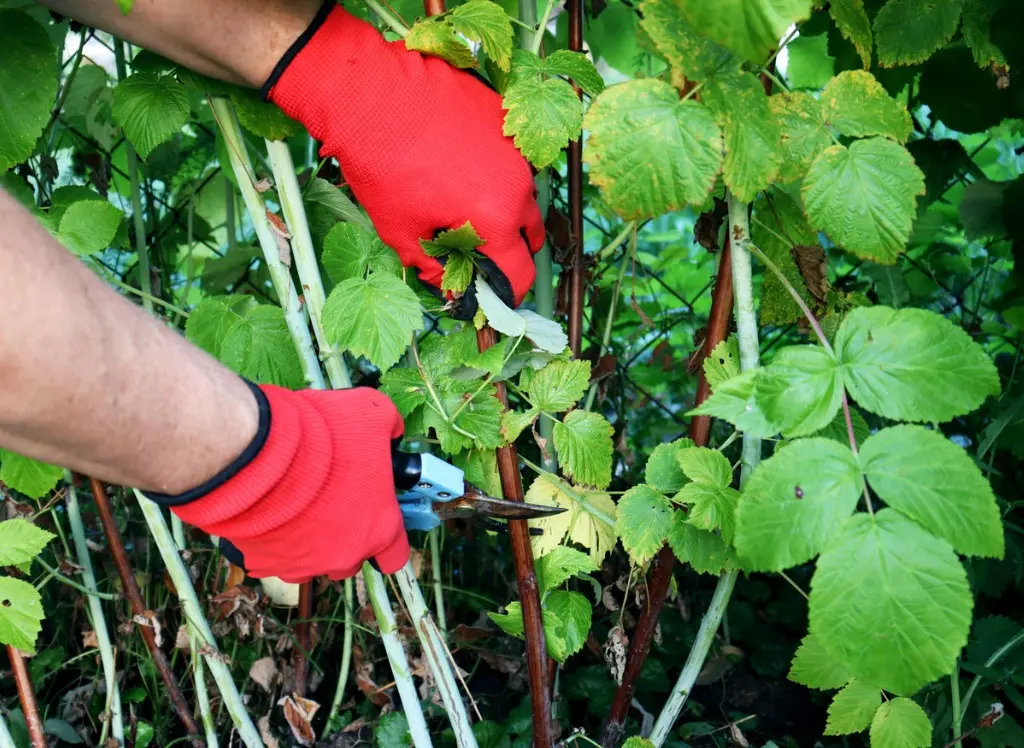
Roses need extra attention to make sure they survive the cold months.
Watering
Make sure to keep your rose bushes watered through the fall, but stop fertilizing about six weeks before the first frost. This will help the roses go into dormancy.
Pruning
Prune any dead or diseased canes before winter sets in. Be sure to remove any leaves and debris around the base of the plant.
Mulching
After the first frost, add a layer of mulch around the base of the rose to protect the roots. You can use leaves, straw, or compost. If you live in a colder climate, consider surrounding your rose bushes with chicken wire or mesh filled with mulch to protect them from frost.
Prepare Trees and Shrubs for Winter
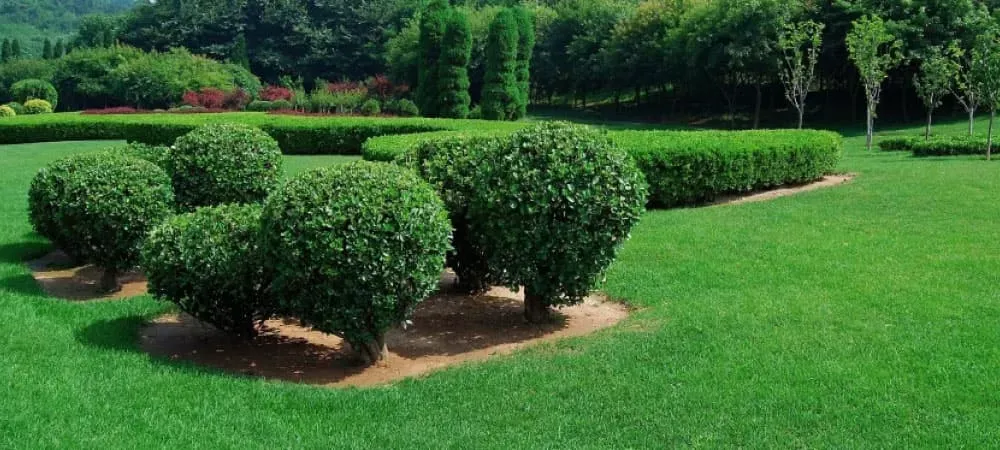
Taking care of trees and shrubs before the winter will help them survive the cold weather.
Pruning
Don’t prune your trees and shrubs right before winter. Wait until late winter or early spring to prune them. Pruning just before winter can make the plants more vulnerable to cold damage.
Watering
Give your trees and shrubs a good watering before the ground freezes. The moisture will protect the roots from extreme temperature changes.
Protection
Young trees and shrubs are especially vulnerable to animals like rabbits and mice. Wrap the trunks with burlap, tree wrap, or chicken wire to protect them from damage. You can also add mulch around the base to insulate the roots. Anti-desiccant sprays can help protect evergreens from losing moisture during the winter.
Clean and Sharpen Gardening Tools
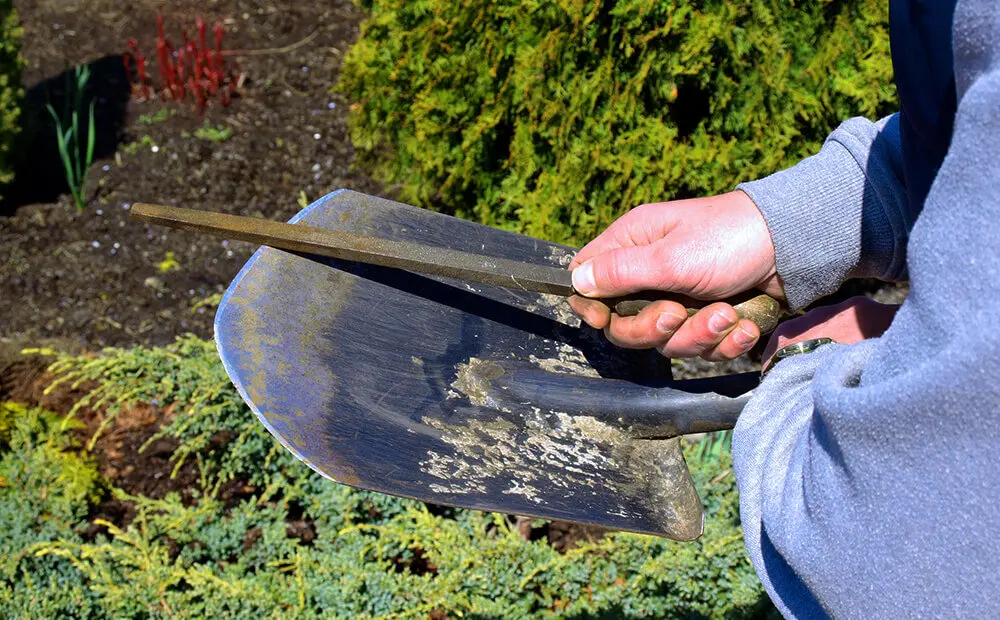
Properly caring for your gardening tools now will make it easier to use them when the weather warms up.
Cleaning
Clean your tools thoroughly to remove dirt, plant sap, and any leftover debris. A wire brush can help remove rust, while a soapy solution will clean off dirt. Be sure to disinfect your pruners and any other tools that have been used on diseased plants.
Sharpening
Sharpen your hoes, shovels, and pruners using a sharpening stone or mill file. Be sure to file away from the cutting edge to avoid making the blade rough.
Oiling
After cleaning and sharpening, apply a light coating of oil to the metal parts of your tools to prevent rust. Store them in a dry place to ensure they stay in good condition.
Yard Cleanup
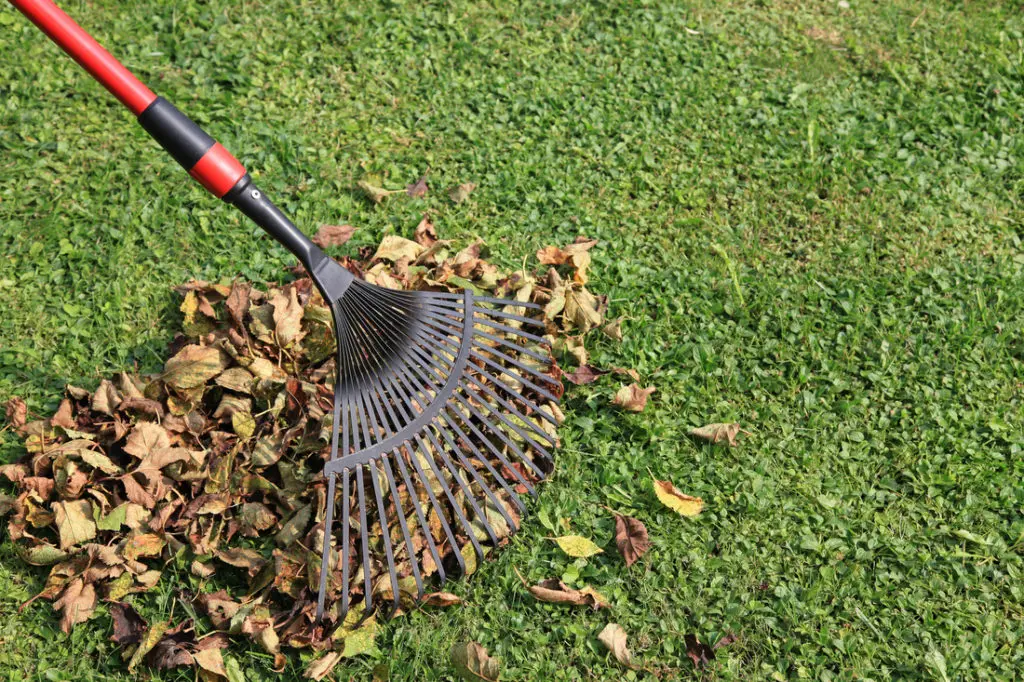
Cleaning up your yard is essential for preventing disease and pests from taking hold over the winter.
Leaves
Rake up fallen leaves and add them to your compost pile, or use them as mulch for your plants. Leaves provide great insulation for plants and break down to add nutrients back into the soil.
Debris
Remove any fallen branches or plant debris. Diseased plant material should be thrown away rather than composted, as it could spread diseases throughout your garden.
Prepare Your Lawn
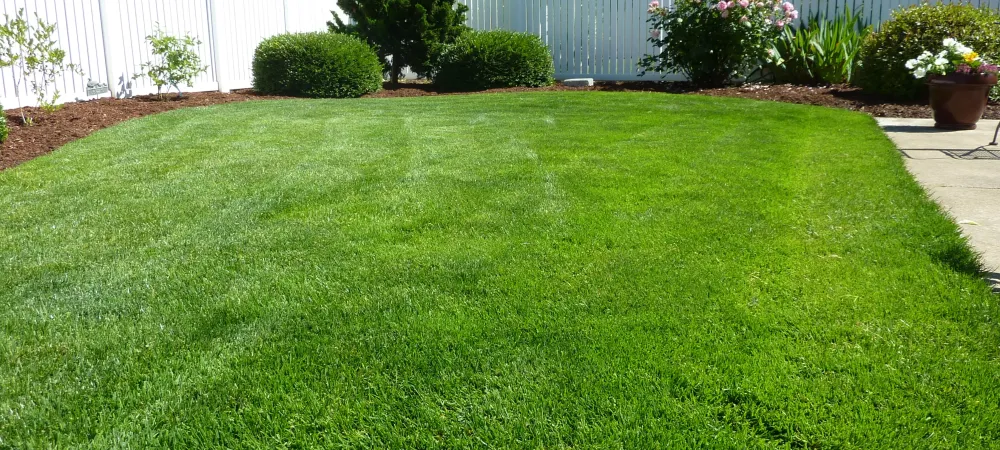
A healthy lawn will bounce back stronger in the spring if it gets the proper care during the winter.
Mowing
Keep mowing your lawn until the grass stops growing. Leave the grass a little longer for winter (about 3 inches) to protect it from the cold.
Leaves
Rake up leaves to prevent them from smothering your grass. If you prefer, you can leave them to mulch the lawn.
Aeration
If your lawn feels compacted, it’s a good time to aerate it in the fall. Aerating helps improve water, air, and nutrient flow to the grass roots.
Fertilizing
Apply a fall fertilizer to help your lawn store nutrients for the winter. This will help it grow stronger in the spring.
With a little preparation, your garden will be ready for the winter and come back even stronger in the spring. Follow these 10 simple steps to give your plants the best chance at surviving the cold months and ensure you have a bountiful garden in the year to come!
Keep reading:

Hello future gardener, starting your own garden can be a wonderful adventure, bringing joy, beauty, and delicious flavors into your […]
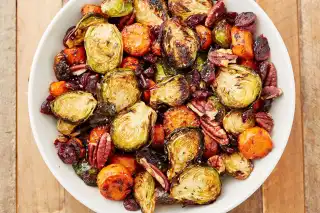
Looking for the perfect Thanksgiving roasted vegetables to complete your holiday meal? This easy and delicious roasted vegetables recipe is […]
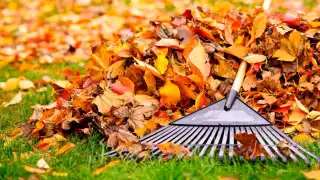
Hey garden lovers! Fall yard cleanup can easily turn into a day-long job, but don’t let all that hard work […]

Introduction: Gardening is a rewarding hobby that brings you closer to nature, and growing your own herb garden can be […]
